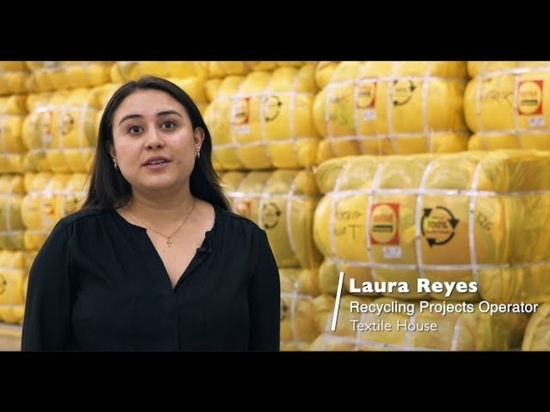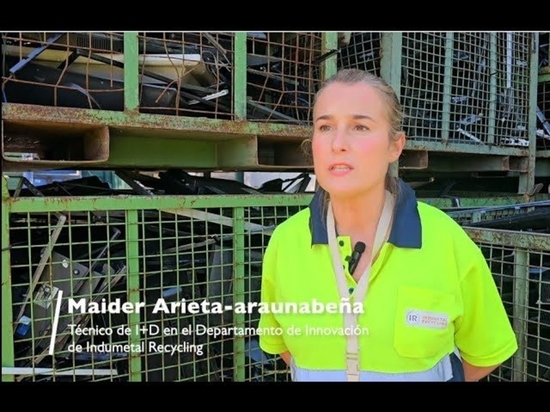
#Industry News
THE NEW PROFESSIONALS OF THE INDUSTRY 5.0
Industry 5.0 is already a reality, and the recycling sector is fully immersed in the transformation that this entails.
While Industry 4.0 focused on the digitalization of industrial processes and the use of new technologies to increase business productivity and efficiency, with Industry 5.0 a new opportunity opens up. According to the definition developed by the European Commission itself in its report, Industry 5.0 is a new paradigm that focuses on three key elements: human beings, environmental sustainability and resilience. At PICVISA we work in that direction, both through our technologies and the talent that integrates the company.
Although we talk about Industry 5.0, however, we must not forget the innovations brought about by the fourth revolution and that are still fundamental for the sector. Waste management continues to experience moments of profound transformation fueled by the convergence of digital, physical and biological technologies with the focus on optimizing processes and increasing their sustainability. Technologies such as artificial intelligence (AI), robotics, big data, nanotechnology, cloud computing, 3D printing, augmented reality, cybersecurity and the Internet of Things (IoT), among others, seek to improve efficiency, reduce costs, minimize the carbon footprint and promote competitiveness. And that is why new professional profiles are needed with new skills that will accelerate this digital revolution while working to strengthen the pillars of the new Industry 5.0.
THE NEED FOR NEW PROFESSIONALS FOR 4.0 AND 5.0 INDUSTRIES
This two-way relationship between Industry 4.0 and 5.0 and the new professional profiles has led to a situation of mutual feedback. On the one hand, Industry 5.0 will impact most professional profiles and modify most of their skills, adding new and eliminating others, and creating new professions. With regard to waste management, some of these new profiles are, for example, Chief Sustainability Officer (CSO), Chief Ethics Officer (EO), Chief AI Ethics Officer (CAIEO) or Business Scientist.
At the same time, other profiles of the future in this Industry 4.0 will be specialists in cybersecurity, robotics and data science, responsible for managing the appropriate resources and technology to create new processes, new methods and ways of working, or those responsible for fully connected and digitized waste treatment plants, responsible for implementing innovation and improving technological processes.
On the other hand, these profiles also impact Industry 4.0, encouraging the transformation of companies, ensuring that they continue to be competitive in an increasingly global world, as in the case of the Digital Transformation Manager, the person in charge of guiding companies on their way to digitalization and transformation, sponsoring the creation of automated teams and processes.
A CHALLENGE FOR COMPANIES: RESKILLING VS. UPSKILLING
The fourth and fifth industrial revolutions, without a doubt, have surprised a good part of the companies. In the unstoppable shadow of these industries, as we said, new professions are flourishing, and they do so at a rate that the labor market is not able to adequately satisfy. The skills that defined professionals in the three stages of waste management are becoming obsolete. In order to minimize this training gap, companies have been forced to transform, embracing continuous learning (lifelong learning), to try to give their employees the training and skills appropriate to the new professional roles.
And it is here, when it comes to providing employees with new knowledge and skills to meet the needs of the business, when concepts such as Reskilling and Upskilling, very present in the PICVISA methodology to keep innovating in our technologies. The difference between the two concepts is in the objective of the training. Thus, while reskilling seeks to train employees to retrain them and adapt them to new functions in the company, creating more versatile professionals, upskilling aims to specialize workers with new skills that optimize their performance. Two concepts with the same final objective: to eliminate the most important brake for the effective implementation of industries 4.0 and 5.0, which is none other than the lack of adequate professional profiles.
INTRAPRENEURSHIP AND ECOSYSTEM: NEW PROFILES, NEW BUSINESS PARADIGM
Industry 5.0 is also contributing to the creation of a new business paradigm, in which more and more companies are trying to emulate the structure and entrepreneurial functioning of start-ups. This kind of Intrapreneurship imitates the spirit and methodology of the entrepreneurial world and aims to create new companies, products or services within the company itself, in order to innovate and find new business models and opportunities. This corporate venture seeks innovation using the company’s own resources… and its workers, equipped with new, more technological, more digital and sustainable skills; regardless of whether they are focused on the stage of collection, classification or treatment of waste.





